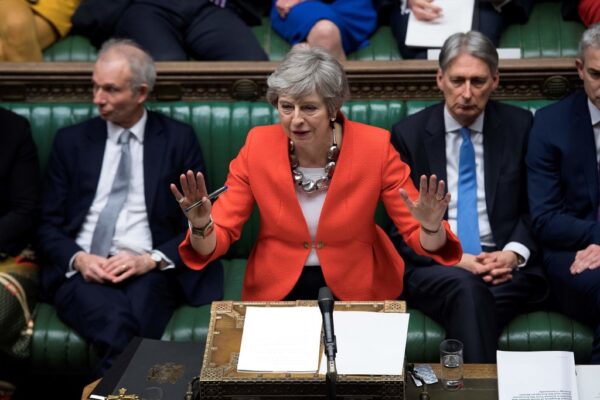
After the 9/11 terrorist attacks, U.S. President George W. Bush’s approval ratings shot up from near 50 percent to over 80 percent. High-profile, international terrorist attacks typically produce this effect, which political scientists call a “rally ’round the flag”—constituents increase their support for incumbent presidents and prime ministers when their country is met with a serious national security threat.
Does this increase in support come about when the head of state is a woman? Cornelius Vanderbilt Professor of Political Science Elizabeth J. Zechmeister and fellow researchers Mirya Holman and Jennifer Merolla sought to answer this question in a study recently published in the American Political Science Review.
“In general, voters associate leadership with masculinity and men with the trait of strong leadership. On average, people threatened by terrorism prefer strong, masculine leadership, which places women leaders at a disadvantage in those contexts,” Zechmeister said. “If voters do not see women as inherently strong leaders, especially during national security crisis, they can hold women to a higher standard after a major terrorist attack. Women leaders may not get the increased support that men leaders tend to get.”
The 2017 bombing at Manchester Arena in the U.K., during Prime Minister Theresa May’s administration, served as a perfect test case for the conventional hypothesis that the “rally ’round the flag” dynamic will apply to all heads of government, regardless of gender. The arena attack killed 23 people and wounded at least another 250, making it the deadliest terrorist event on U.K. soil since the 2005 bombings in the London Tube. In elections that occurred soon after the terrorist event, May’s Conservative Party lost seats in Parliament. That result is counter to the prevailing theory, and it affirms what Zechmeister and her colleagues refer to as their “gender-revised” rally framework.
Using survey data from the British Election Study, the longest running social science survey in the U.K., which sampled more than 16,000 respondents on a rolling basis before and after the Manchester bombing in 2017, Zechmeister’s team found that May did not benefit with an increase in support after the bombing. Support for her declined instead, with losses most pronounced among those who hold negative views of women. This theory held when the scholars analyzed the relationship between large international terrorist attacks and executive approval in another 66 countries. May’s case fits with Zechmeister and her colleagues’ theory that gendered evaluations of political leaders place women executives and their parties at a disadvantage when terrorists strike.
Terrorist attacks may be particularly damaging to sitting women political leaders. The voting public prefers strong, resolute leadership in the face of national security threats—traits that the public associates with men and men who are politicians. Feminine traits associated with women are found to be undesirable in leadership roles associated with war, violence and terrorism.
“We found that voters punished May and her political party because of the attack,” Zechmeister said. “And communities closer to Manchester were less likely to support the Conservative Party. Understanding these dynamics matters because executive approval matters. Approval provides the political currency that leaders need to achieve their goals in office and can have downstream consequences for the leader’s party.”
Zechmeister said their future research could consider whether there are situations in which women executives are able to hold gender bias at bay, and how so. The degree to which the public holds women to different standards in an economic or public health crisis (such as the COVID-19 pandemic, for example) is worthy of additional study. It may be, in fact, that women executives—disadvantaged when terrorists strike—are more prone to receive rallies under other types of national crises.